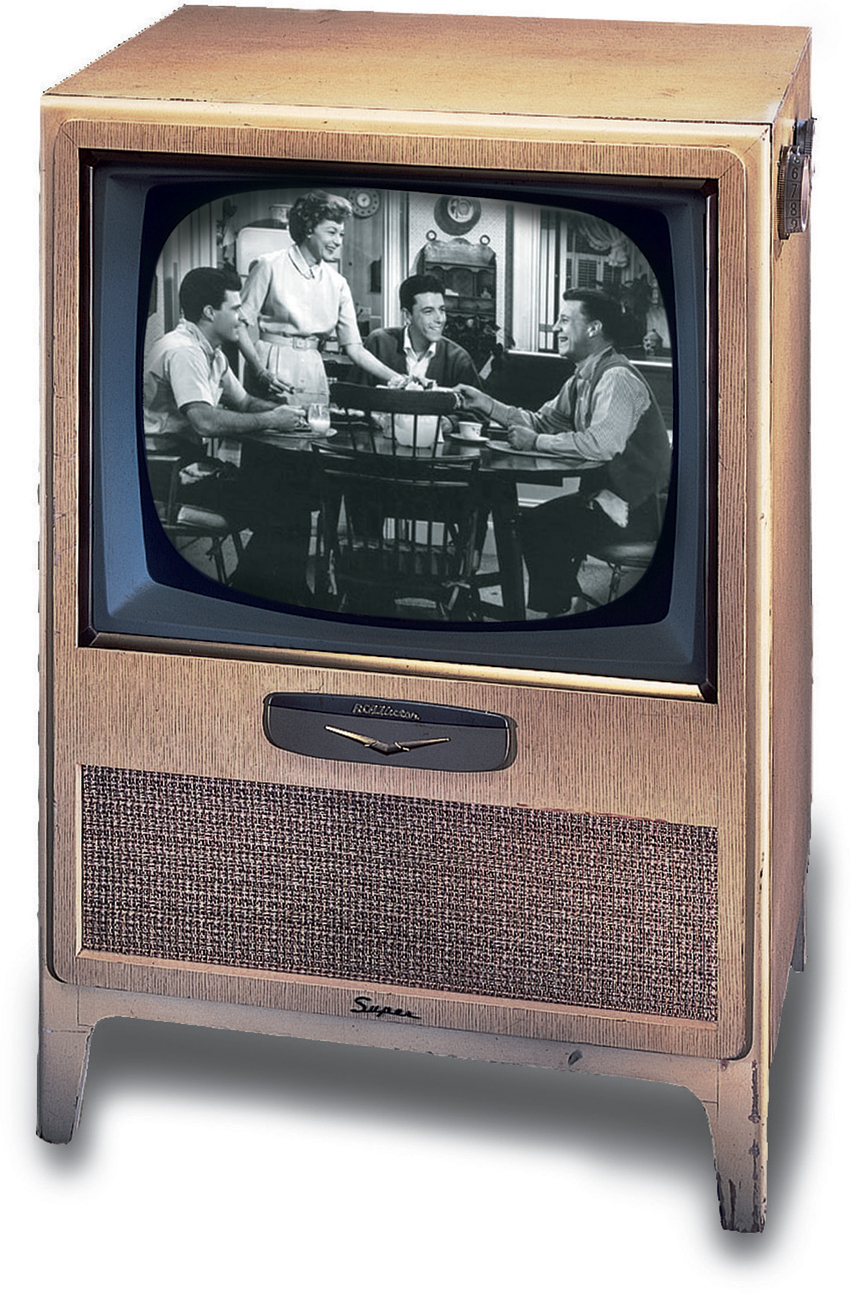Television Transforms Culture and Politics.
Printed Page 754 Chapter Chronology
Television Transforms Culture and Politics. Just as family life and religion offered a respite from Cold War anxieties, so too did the new medium of television. By 1960, nearly 90 percent of American homes boasted a television set, and the average viewer spent more than five hours each day in front of the screen. Audiences were especially attracted to situation comedies, which projected the family ideal and the feminine mystique into millions of homes.
Television also began to affect politics. Eisenhower's 1952 presidential campaign used TV ads for the first time, although he was not happy that "an old soldier should come to this." By 1960, television played a key role in election campaigns. Reflecting on his narrow victory, president-elect John F. Kennedy remarked, "We wouldn't have had a prayer without that gadget."

Television transformed politics in other ways. Money played a much larger role in elections because candidates needed to pay for expensive TV spots. The ability to appeal directly to voters in their living rooms put a premium on personal attractiveness and encouraged candidates to build their own campaign organizations, relying less on political parties. The declining strength of parties and the growing power of money in elections were not new trends, but TV helped accelerate them.
Unlike government-financed television in Europe, private enterprise paid for American TV. What NBC called a "selling machine in every living room" became the major vehicle for fostering consumption, and advertisers did not hesitate to interfere with shows that might jeopardize the sale of their products. In 1961, Newton Minow, chairman of the Federal Communications Commission, called television a "vast wasteland." While acknowledging some of TV's achievements, particularly documentaries and drama, Minow depicted it as "a procession of game shows, ...formula comedies about totally unbelievable families, blood and thunder, mayhem, violence, sadism, murder ...and cartoons." But viewers kept tuning in. In little more than a decade, television came to dominate Americans' leisure time, influence their consumption patterns, and shape their perceptions of the nation's leadership.